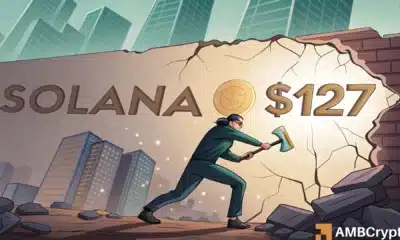Carbon neutrality takes Polygon’s MATIC to the green

The decentralized Ethereum scaling platform ticked off its first sustainability milestone by achieving carbon neutrality this week. By investing $400,000 in carbon credits, Polygon is now one step closer to becoming carbon negative. With credits equivalent to 104.794 tons of greenhouse gases, the network has successfully settled its CO2 debt since inception.
Triggered by this news, MATIC was quick to react. The altcoin took to trade in the green as it registered a double-digit hike on the daily chart. Rallying by over 24% in a day, MATIC was changing hands at $0.5075 at press time.
The green milestone was a result of a number of strategic steps taken by the network. According to its official blog post, the achievement came after Polygon’s ‘Green Manifesto’, launched in mid-April. Tagged as ‘a smart contract with Planet Earth’, it is a part of the network’s broader vision for sustainable development.
Acknowledging that there is still more to be done, Co-Founder of Polygon, Sandeep Nailwal, was quoted –
“Our world is facing an environmental crisis, and the blockchain industry must do far more than promise to stop adding to the problem.”
Fighting the energy consumption debate
Cryptocurrencies are very much in the kernel of energy consumption debate. According to the Cambridge Bitcoin Electricity Index, Bitcoin has consumed more electricity in a year than Sweden, Norway, or the United Arab Emirates. However, the energy consumption debate has often been challenged by the one spearheaded by the utility factor.
In a striking point of view laid out by the World Economic forum (WEF), energy consumption becomes less a question of morality than one of basic human necessity. When something provides utility, it’s often accepted despite its high energy levels as it adds value to society. According to WEF’s report published in March this year, data centres (which give us access to popular platforms like Netflix and Playstation) in the U.S. consume 204 TWh of energy a year, while Bitcoin uses 62 TWh a year.
At present, there are an estimated 300 million users of crypto globally, and not all of them live in developed nations. A multitude in emerging economies like Kenya, Vietnam, Venezuela, and Brazil adopt digital currencies to dodge the cost of legacy financial systems, unstable monetary governance, and currency devaluation issues.
Walking the green field
The crypto-industry is quite ahead in driving the change with a plethora of environment-friendly projects. Polygon is not alone in walking the carbon neutral path as meaningful action is being taken by many in the space.
The open-source cryptocurrency Filecoin also has a role in a greener present and future. ‘Filecoin Green’ is an initiative led by the Filecoin Foundation, aimed at making its blockchain carbon-neutral and, in time, carbon negative.
Meanwhile, Algorand celebrated this year’s Earth Day by becoming the world’s first carbon-negative blockchain. This was achieved in partnership with ClimateTrade, an organization dedicated to helping companies improve their sustainability profiles.
KlimaDAO is another climate-driven organization that helped Polygon achieve its recent feat. The decentralized autonomous organization does this through the creation of a DeFi token that is backed by real-world carbon offsets.
A leading crypto community-driven initiative is the ‘Crypto Climate Accord’. Focused on the decarbonization of cryptocurrencies, it has more than 200 companies and individuals spanning the crypto, finance and technology field.
From Valkyrie to Filecoin and Enjin, the signatories have made a public commitment to achieve net-zero emissions from electricity consumption by 2030.
– Authored by Diya Joseph






